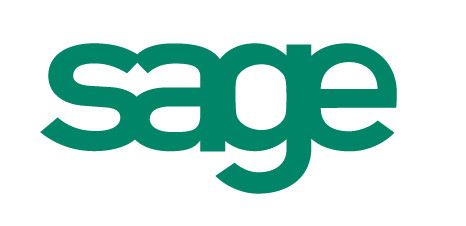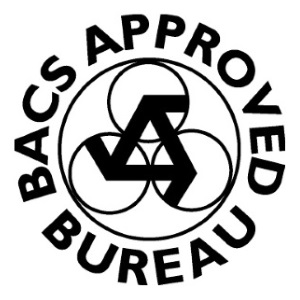Insolvency Solutions for Construction Businesses
The construction industry is highly susceptible to financial instability due to fluctuating material costs, payment delays, and complex contractual obligations. When a construction company faces insolvency, the process can be intricate, involving multiple stakeholders such as subcontractors, suppliers, and clients. Understanding how construction sector insolvency works is crucial for directors, creditors, and other affected parties to navigate the situation effectively.
At Bennett Verby Corporate Recovery, we specialise in guiding businesses through financial distress, ensuring compliance with legal obligations while exploring the best possible outcomes.
Understanding Insolvency in the Construction Sector
Insolvency occurs when a company can no longer pay its debts as they fall due or when its liabilities exceed its assets. In the construction sector, this can result from a variety of challenges, including:
- Late payments from clients or main contractors.
- Rising material and labour costs reducing profit margins.
- Delays and disputes leading to cash flow problems.
- Fixed-price contracts making it difficult to adjust to inflation.
- Overextension from taking on too many projects without adequate funding.
Types of Construction Insolvency
1. Administration
Administration is a formal insolvency process that provides legal protection from creditor actions while an Administrator assesses the company’s viability. The Administrator’s role is to rescue the business where possible or achieve a better return for creditors than immediate liquidation.
Impact on Construction Businesses:
- Contracts may be terminated unless Administrators can ensure project continuation.
- Employees may be made redundant or transferred under TUPE regulations.
- Subcontractors and suppliers may face payment delays or losses.
2. Company Voluntary Arrangement (CVA)
A CVA allows an insolvent construction company to negotiate a structured repayment plan with creditors, enabling continued trading while gradually settling debts.
Benefits of a CVA:
- Helps avoid liquidation by restructuring debt over an agreed period.
- Allows directors to retain control of the company.
- Protects against legal action from creditors while in place.
3. Liquidation
Liquidation is the process of closing a business and distributing its assets to creditors. In construction, this often occurs when no viable restructuring option is available.
Types of Liquidation:
- Creditors’ Voluntary Liquidation (CVL): Directors voluntarily wind up the company due to insolvency.
- Compulsory Liquidation: Initiated by creditors via a court petition when debts remain unpaid.
4. Receivership
Lenders may appoint a receiver to recover debts from a company’s assets. This is common when a construction firm has secured borrowing against property or equipment.
What Happens to Construction Contracts During Insolvency?
One of the most significant challenges in construction insolvency is the fate of ongoing contracts. Depending on the contractual terms and insolvency process, the following may occur:
- Termination Clauses: Many contracts allow for termination if a contractor enters insolvency.
- Step-in Rights: Clients or funders may take over a failing contractor’s responsibilities to ensure project completion.
- Retention Funds: Payments withheld by clients may be forfeited or used to pay replacement contractors.
- Performance Bonds: If insolvency triggers a bond claim, insurers may step in to complete or fund the work.
Impact on Subcontractors and Suppliers
Subcontractors and suppliers are often the most affected when a construction firm becomes insolvent. Common issues include:
- Non-payment for completed work.
- Supply chain disruptions affecting multiple projects.
- Legal disputes over unpaid invoices.
To mitigate risk, subcontractors should:
- Review contract terms for insolvency-related clauses.
- Monitor payment schedules and financial health of main contractors.
- Seek professional advice on recovering outstanding debts.
Legal Considerations for Directors
Company directors have specific legal obligations when facing insolvency, including:
- Avoiding wrongful trading: Continuing to trade when insolvency is inevitable can result in personal liability.
- Acting in creditors’ best interests: Once insolvency is apparent, directors must prioritise creditor interests over shareholders.
- Maintaining accurate financial records: Failing to do so can result in accusations of mismanagement or fraud.
Seeking early professional advice can help directors navigate these responsibilities while exploring potential recovery options.
How to Mitigate Insolvency Risks in Construction
While insolvency can sometimes be unavoidable, businesses can take proactive steps to minimise financial risks:
- Implement robust cash flow management to ensure consistent liquidity.
- Negotiate favourable contract terms that include flexible payment schedules and clear insolvency clauses.
- Conduct due diligence on clients and partners to assess financial stability before entering agreements.
- Diversify revenue streams to reduce dependence on a single large contract or sector.
- Seek professional guidance early if financial difficulties arise.
How Bennett Verby Corporate Recovery Can Help
If your construction business is facing financial distress, expert guidance is crucial to exploring all available options. At Bennett Verby Corporate Recovery, we specialise in:
- Providing tailored insolvency advice for construction firms.
- Assisting directors in fulfilling legal obligations.
- Negotiating with creditors and exploring rescue options.
- Managing Administration, CVAs, and liquidation processes effectively.
Don’t wait until it’s too late. Contact us today for confidential advice and practical solutions to protect your business.












